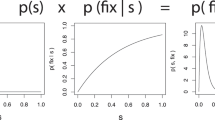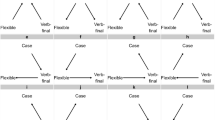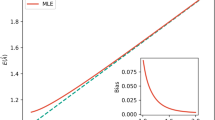Abstract
FIRST, we must apologize for having evidently given the impression in our original communication, especially in our assumption (iv), that we were intending to use information theory in treating the problem. Our aim, however, was to attack the problem without recourse to the assumptions of this theory. These necessarily involve regarding language as consisting of messages, and the words as being, for all statistical purposes, packets of information. This model is unrealistic as applied to real language situations, on the basis of which the faculty of speech is learned and which even in the most sophisticated communities dominate its natural evolution. We accordingly sought for some approach which would avoid the need for the concept of ‘information’ in the technical sense; our condition (iv) should have been put in the form: “Languages will tend to evolve in such a way that the time required to recall a given number of distinct words is a minimum”. Our unusual mathematical method was designed because of the difficulty in giving an exact formulation of this condition.
This is a preview of subscription content, access via your institution
Access options
Subscribe to this journal
Receive 51 print issues and online access
$199.00 per year
only $3.90 per issue
Buy this article
- Purchase on Springer Link
- Instant access to full article PDF
Prices may be subject to local taxes which are calculated during checkout
Similar content being viewed by others
Author information
Authors and Affiliations
Rights and permissions
About this article
Cite this article
PARKER-RHODES, A., JOYCE, T. Distribution of Word Frequencies. Nature 179, 595–596 (1957). https://doi.org/10.1038/179595b0
Issue Date:
DOI: https://doi.org/10.1038/179595b0
This article is cited by
-
Linguistic indicators
Social Indicators Research (1980)
-
Frequency distributions of scientific performance a bibliography of Lotka's law and related phenomena
Scientometrics (1978)
Comments
By submitting a comment you agree to abide by our Terms and Community Guidelines. If you find something abusive or that does not comply with our terms or guidelines please flag it as inappropriate.



